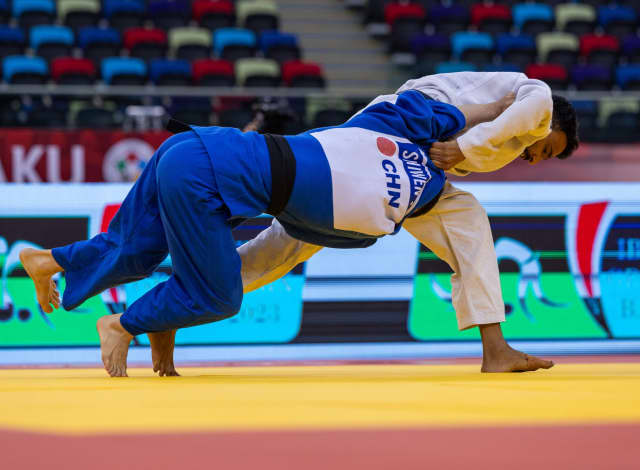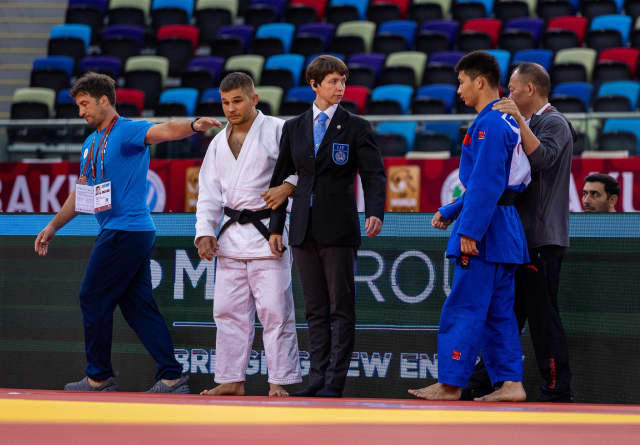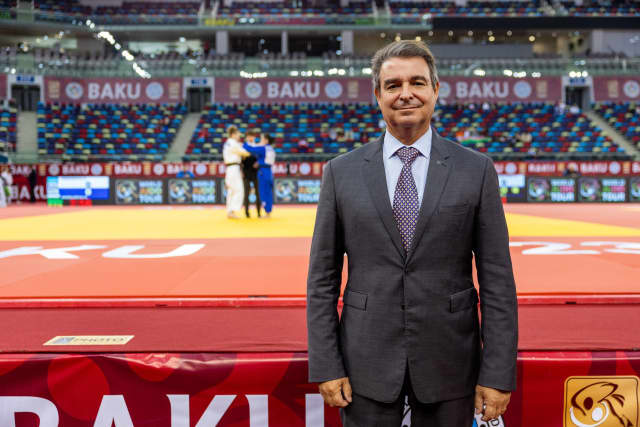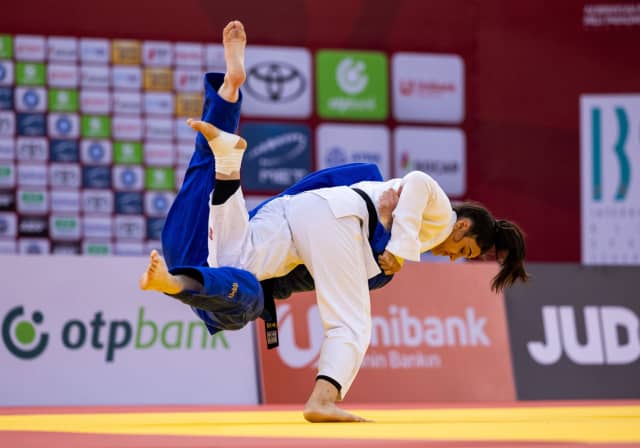"I witnessed my first para-judo event some years ago, here in Baku actually. It was just before the pandemic. I was really impressed, to tell the truth.
As head of the medical commission and here in Baku as supervisor of all the medical issues, I have to pay attention to a lot of details that are specific to the visually impaired judoka.
First of all, we have to be sure that the J1/J2 IBSA categories are respected, to ensure that fairness is maintained. More specifically, we have to create the safest environment possible for the athletes. They don't see or hardly see anything, so we have to make sure that they don't have to take any risk while accessing the tatami, for instance. We have to think in advance and avoid any obstacles and difficulty to move around. It begins in the warm-up area, up to the field of play and back. The idea is that we have to accompany the athletes as much as possible. We have to go towards them and we can not wait for them to come to us.
In case of an injury during a contest, we have an important role to play, since the athletes often don't see what is happening, so we have to explain, to reassure, to give the information they can not get from their eyes. We give them confidence. Every small detail is important.
I believe that judo helps visually impaired people in many ways. It gives them self-confidence. It helps them to deal with wins or losses, to fight. Judo shows them that they can do everything, that they can achieve goals like anyone. Yes, they have some kind of limitation, but once on the tatami, they have no limits. They are athletes, full athletes. They are like everyone. They have dreams and judo helps them to achieve them like any human being.
I can see that para-judo judoka have a very strong mentality that shows the value of our sport and it feels good to work in such an environment. We are all happy to be here and to be part of the para-judo family, which is part of the global judo family."




